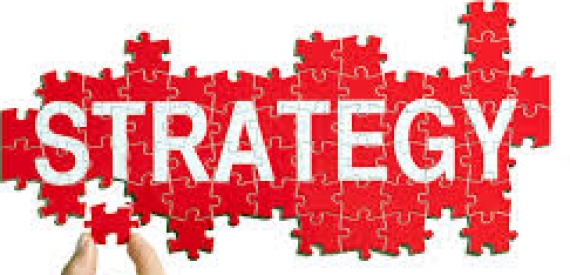
We have a crisis, but your strategy doesn't have to be in crisis.
Just a few short weeks ago most of us knew what we were doing. We had our strategic plan, We had our business plan. We were doing it, whatever "it" was.
And now? For most of us, it's all turned on it's head. But then what?
Now, more than ever, it's important to get the helicopter view and to strategise effectively. For many organisations, that's been difficult in good times!
So here are the top tips I have learnt in many years of dealing with numerous crisis situations, either as a lawyer on behalf of my clients, as a company director or being involved in a myriad of membership organisations and not-for-profits.
1. Breathe: I know that seems like Polly Anna advice, but it is the hardest, when in crisis. Take the time, and if necessary, get the help, to be centred and calm. Many decisions at the moment have to be made quickly, but whilst you are feeling full of anxiety and fear, they are unlikely to be great decisions.
2. Get Help: Use the full resources of your board and executive. Often what's required is a person outside of your organisation or your family to be a rational reality tester for you. Bringing in the skills needed to help to navigate big decisions is useful too, whether it is a strategy specialist, an accountant, a lawyer or a host of other specialists.
3. Prioritise people: It's the people who make a business or an organisation work - even SME's that are micro-businesses. Ensure you safeguard your people as best as you can - you, board members, staff, suppliers, customers, sponsors, members. It might be as simple as calling regular staff meetings or ringing around sponsors or putting out a newsletter. But look after people first.
4. Reassess your existing plans: Consider your existing strategic plan. Are the goals relevant? Hopefully the goals remain. But if not, what are they now? Consider your business plan. What works in the current environment? What could work?
5. What's possible: Start with a focus on what is possible. It is often invigorating.
6. Take control of what you can control: When I was giving advice to families experiencing a breakdown, I would often counsel a spouse to take control of the things they could - often that would be just re-doing their will. But taking some control, no matter how small, was empowering. And so it is now when so much is outside our control. Even if it's a small thing, do that. See if it works. If it does, do more of it. If it doesn't, pivot to something else.
7. Less data and different data: The information to base decisions on has changed. We used to be able to base decisions on lag indicators. Now we need to focus on lead indicators. Be prepared to have less data and different data to rely on, but make the decisions anyway.
8. Role reversal: We are told we are all in this together. You might have to pivot roles in the organisation to have resources better utilised. Board members may need to help in a hands-on way with management. Staff may need to do jobs they otherwise wouldn't. Be prepared to think laterally about the skills your team has and how they can be utilised.
9. Nimble decision-making: Review your strategy more often than you normally would. The conditions under which we are doing business are changing and we can expect them to keep changing. Try and be nimble and flexible. The businesses that can be, are more likely to survive and thrive.
That's it. Yell out if I can help you in any way and remember there's a crack in everything - that's how the light gets in. With thanks to Leonard Cohen.

 RETURN TO ALL
RETURN TO ALL